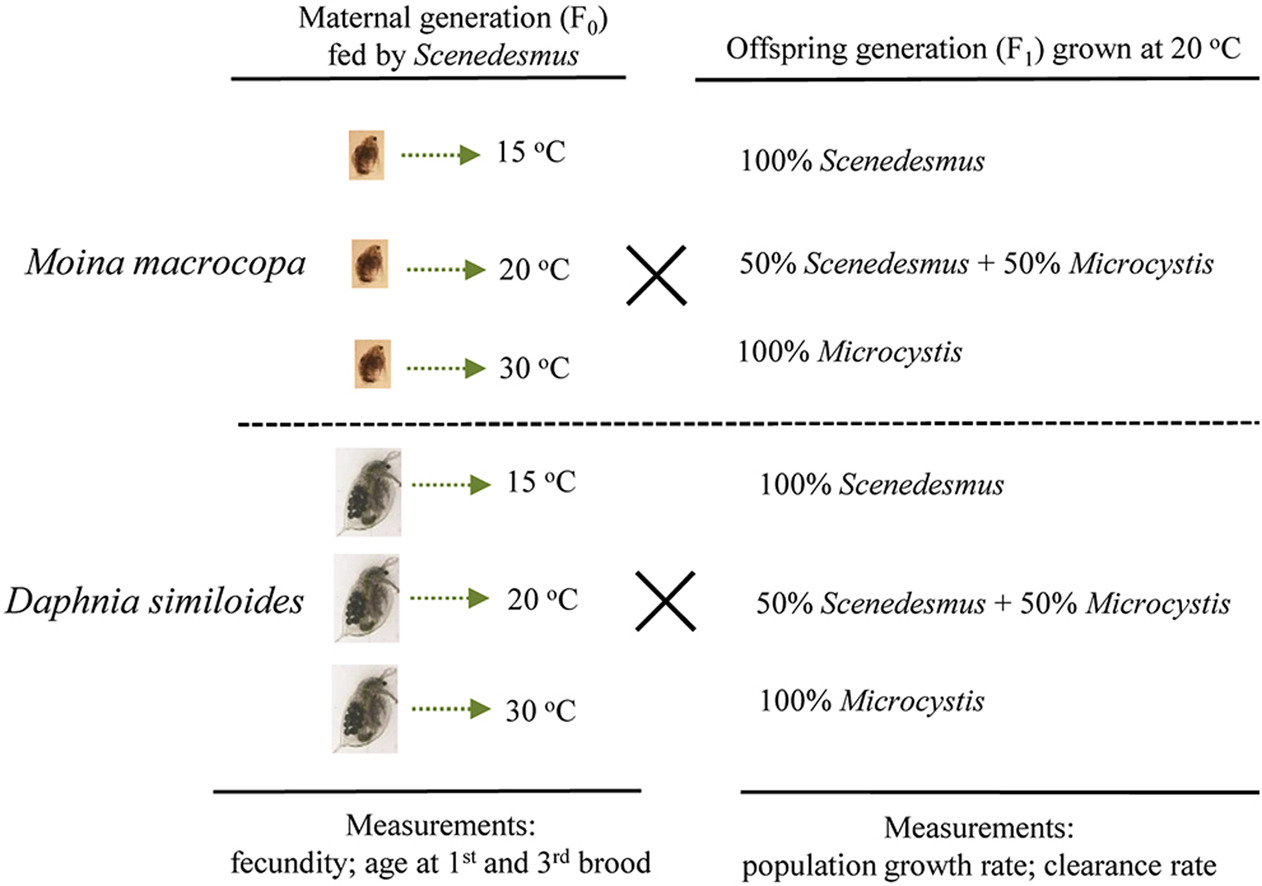
Citation
Lyu, K., L. Zhang, L. Gu, X. Zhu, A. E. Wilson, and Z. Yang. 2017. Cladoceran offspring tolerance to toxic Microcystis is promoted by maternal warming. Environmental Pollution 227:451-459.
Abstract
Elevated temperatures and nutrients can favor phytoplankton dominance by cyanobacteria, which can be toxic to zooplankton. There is growing awareness that maternal effects not only are common but can also significantly impact ecological interactions. Although climate change is broadly studied, relatively little is known regarding its influence on maternal effects in zooplankton. Given that lakes are sentinels for climate change and that elevated temperatures and nutrient pollution can favor phytoplankton dominance by toxic cyanobacteria, this study focused on elucidating the effects of maternal exposure to elevated temperatures on the tolerance of zooplankton offspring to toxic cyanobacteria in the diet. Three different maternal thermal environments were used to examine population fitness in the offspring of two cladoceran species that vary in size, including the larger Daphnia similoides and the smaller Moina macrocopa, directly challenged by toxic Microcystis. Daphnia and Moina mothers exposed to elevated temperatures produced offspring that were more resistant to Microcystis. Such findings may result from life-history optimization of mothers in different temperature environments. Interestingly, offspring from Moina fed with toxic Microcystis performed better than Daphnia offspring, which could partially explain the dominance of small cladocerans typically observed during cyanobacterial blooms. The present study emphasizes the importance of maternal effects on zooplankton resistance to cyanobacteria mediated through environmental warming and further highlights the complexities associated with the abiotic factors that influence zooplankton-cyanobacteria interactions.